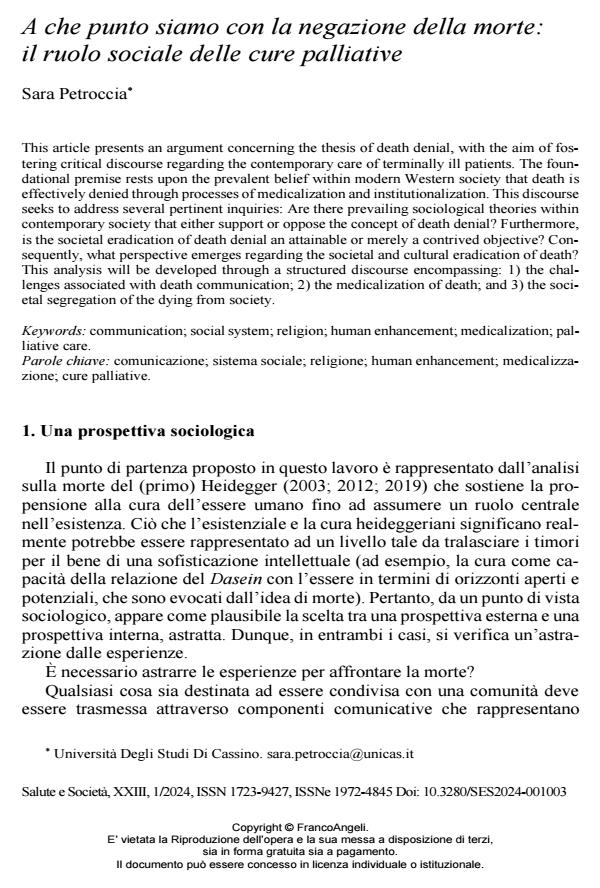A che punto siamo con la negazione della morte: il ruolo sociale delle cure palliative
Journal title SALUTE E SOCIETÀ
Author/s Sara Petroccia
Publishing Year 2024 Issue 2024/1
Language Italian Pages 16 P. 21-36 File size 344 KB
DOI 10.3280/SES2024-001003
DOI is like a bar code for intellectual property: to have more infomation
click here
Below, you can see the article first page
If you want to buy this article in PDF format, you can do it, following the instructions to buy download credits

FrancoAngeli is member of Publishers International Linking Association, Inc (PILA), a not-for-profit association which run the CrossRef service enabling links to and from online scholarly content.
This article presents an argument concerning the thesis of death denial, with the aim of foster-ing critical discourse regarding the contemporary care of terminally ill patients. The founda-tional premise rests upon the prevalent belief within modern Western society that death is ef-fectively denied through processes of medicalization and institutionalization. This discourse seeks to address several pertinent inquiries: Are there prevailing sociological theories within contemporary society that either support or oppose the concept of death denial? Furthermore, is the societal eradication of death denial an attainable or merely a contrived objective? Conse-quently, what perspective emerges regarding the societal and cultural eradication of death? This analysis will be developed through a structured discourse encompassing: 1) the challeng-es associated with death communication; 2) the medicalization of death; and 3) the societal seg-regation of the dying from society.
Keywords: communication; social system; religion; human enhancement; medicalization; palliative care.
Sara Petroccia, A che punto siamo con la negazione della morte: il ruolo sociale delle cure palliative in "SALUTE E SOCIETÀ" 1/2024, pp 21-36, DOI: 10.3280/SES2024-001003